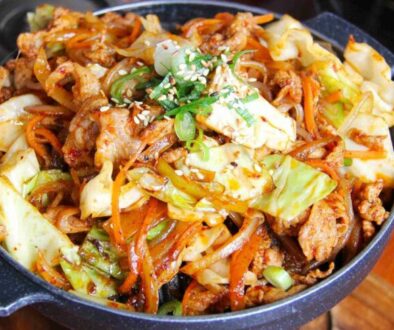Specific Carbohydrate Diet: 10 must follow Easy Tips for You
Discover the power of the Specific Carbohydrate Diet in tackling digestive disorders. Uncover benefits, understand the challenges, and much more.
Crohn’s disease, ulcerative colitis, and irritable bowel syndrome are among the digestive disorders that the Specific Carbohydrate Diet (SCD) targets through its use as an elimination diet. This comprehensive guide will teach you everything you need to know about SCD, including what it is, how it works, what foods are allowed and forbidden, its benefits and challenges, and how to get started.
What is a Specific Carbohydrate Diet?
The Specific Carbohydrate Diet (SCD) is a diet that eliminates certain types of carbohydrates in order to improve gut health and reduce inflammation. It was developed by Dr. Sydney Haas in the 1920s to treat celiac disease. Biochemist Elaine Gottschall later popularized the diet in her book “Breaking the Vicious Cycle”. The SCD eliminates certain carbohydrates that are difficult to digest, such as those found in grains, potatoes, and processed foods. The diet also focuses on eating whole, unprocessed foods that are easy to digest.
You must read this https://fitnessfrenzy.blog/what-is-nutrition-6-types-of-vital-nutrients/
How does SCD work?

SCD is based on the idea that certain carbohydrates are difficult to digest and can damage the gut lining. This can lead to inflammation and a variety of digestive symptoms. The SCD eliminates these carbohydrates from the diet, which allows the gut to heal and reduce inflammation. The SCD works by eliminating disaccharides (double sugars) and polysaccharides (complex sugars) that are difficult for the body to digest. These sugars can feed harmful bacteria in the gut, which can lead to inflammation and other digestive problems.
The SCD operates through the exclusion of specific carbohydrates from the dietary intake.
These carbohydrates include:
- Grains
- Starchy vegetables
- Sugary foods and drinks
- Lactose (milk sugar)
- Certain fruits, such as apples and bananas
Allowed foods in SCD

Specific Carbohydrate Diet is a restrictive diet, but there is still a variety of nutritious and delicious foods that are allowed. The following foods are allowed on the SCD:
- Meat, fish, and poultry
- Eggs
- Vegetables (except corn, potatoes, and peas i.e., starchy vegetables)
- Fruits (except bananas and mangoes)
- Nuts and seeds
- Dairy products (except yogurt)
- SCD-approved grains (such as quinoa and rice)
- Nuts and seeds
- Fats that are good for your heart, like olive oil and avocado oil
Forbidden foods on the SCD

Foods that you are not allowed to while you are on SCD are:
- Wheat, barley, and rye
- Oats
- Corn
- Potatoes
- Peas
- Bananas
- Mangoes
- Honey
- Maple syrup
- Agave syrup
- Processed foods
- Sugar-sweetened beverages
Benefits of the Specific Carbohydrate Diet
SCD has been shown to be effective in treating a variety of digestive disorders, including Crohn’s disease, ulcerative colitis, and IBS. It can also help to improve gut health and reduce inflammation throughout the body.
You will get the following benefits of the SCD:
- Reduced inflammation
- Improved gut health
- Reduced symptoms of digestive disorders
- Improved digestion and absorption of nutrients
- Increased energy levels
- Weight loss
- Improved mood and cognitive function
Challenges of the SCD
The specific carbohydrate diet can be a challenging diet to follow, especially at first. It is important to be patient and to make gradual changes to your diet. It is also important to find SCD-approved recipes and to plan your meals ahead of time.
Some challenges of the SCD include:
- The diet can be restrictive.
- It can be difficult to find SCD-approved foods when eating out or traveling.
- It can be time-consuming to prepare SCD-approved meals.
- The diet can be expensive, especially if you need to purchase specialized SCD-approved products.
Tips for getting started on the SCD
If you are considering starting the SCD, you must follow these tips:
- Educate yourself
It is important to understand the basics of the diet before you start so that you can make informed choices about your food. There are many resources available online and in libraries, and you may also want to talk to a registered dietitian who specializes in SCD.
- Start slowly
It can be overwhelming to try to change your entire diet overnight. Start by making small changes, such as eliminating gluten and processed foods. Once you have adjusted to those changes, you can start to remove other carbohydrates from your diet.
- Focus on whole foods
The Specific Carbohydrate Diet is based on eating whole, unprocessed foods. This means eating plenty of fruits, vegetables, meat, fish, and eggs. It is also important to choose healthy fats, such as those found in olive oil, avocados, and nuts.
- Read food labels carefully
Many processed foods contain hidden carbohydrates. Be sure to read food labels carefully to identify any carbohydrates not allowed on the SCD.
- Be prepared
It can be helpful to have a plan in place for when you are dining out or traveling. Many restaurants and cafés have SCD-friendly options available, but it is always best to check ahead of time.
- Be patient
It takes time to adjust to a new diet. Don’t get disappointed if you experience some discomfort in the beginning. Just keep at it, and you will eventually start to feel the benefits of the SCD.
- Find a support group
There are many online and in-person support groups for people on the SCD. These groups can be a great source of information and support.
- Don’t be afraid to experiment
Once you have a good understanding of the basics of a specific carbohydrate diet, you can start to experiment with different foods and recipes. SCD-friendly meals can be found in a wide variety of tasty and nutritious flavors.
- Listen to your body
Notice your body’s response to different foods. If a particular food makes you feel unwell, avoid it.
- Don’t be afraid to ask for help
If you have any questions or concerns about the SCD, consult your doctor or a registered dietitian. They can help you develop a plan that is right for you.
Must Do Things
- Be sure to drink plenty of fluids when following the SCD.
- Avoid processed foods and sugary drinks.
- Eat plenty of fruits and vegetables.
- Get regular exercise.
Specific carbohydrate diet recipes
The internet and cookbooks are full of delicious and nutritious SCD recipes. Here are a few of my favorites that you might enjoy:
- SCD Chicken Soup
- SCD Beef Stew
- SCD Salmon with Roasted Vegetables
- SCD Chicken Stir-Fry
- SCD Chocolate Chip Muffins
The Specific Carbohydrate Diet is a restrictive diet, but it can be an effective way to improve gut health and reduce inflammation. It is important to consult your doctor or a registered dietitian before starting the diet.
I hope this blog post has been helpful. If you have any questions about the Specific Carbohydrate Diet (SCD), please leave a comment below. We would love to answer you.




